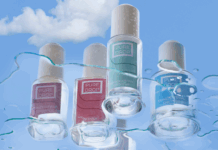Longer life expectancy, pollution and environmental problems have led to a strong demand for anti-aging products, and this is now a key issue for the cosmetics industry. Catherine Grillon, a researcher at the Centre de Biophysique Moléculaire in cutaneous biology and microenvironment, proposes to familiarize cosmetics professionals with in vitro techniques on skin cells.
Why is skin cell biology an essential area of research for the cosmetics industry?
Cutaneous biology has come a long way in recent years: we can now better identify the mechanisms by which the skin functions and maintains its balance, as well as the causes of skin disorders. These advances are enabling us to explore new avenues and find new active ingredients for better-adapted, more effective cosmetics.
Furthermore, in today's society, consumers are increasingly attentive to scientific proof of the efficacy of the products they buy, so it's necessary for the cosmetics industry to be able to provide this proof through science. With the use of animals having been totally banned in the cosmetics industry in France and the European Union since 2013, new ways had to be found to assess the activity and safety of cosmetic products. Cell biology has responded to this need with the development of various in vitro skin models, from the simplest to the most complex, and new techniques for assessing compound activity in vitro.
Where has your research path taken you?
My research focuses on skin aging and the study of oxygenation on the skin's antioxidant defenses.
During my thesis, I studied skin cell receptors and began to develop ways of specifically targeting these cells to deliver active ingredients. This led me to focus on the cutaneous microenvironment, and more specifically on the construction of in vitro models closer to the skin in physiological conditions. I was mainly interested in the skin's oxygenation rate, which is very low in the epidermis. Indeed, the two main characteristics of skin aging are destruction of the extracellular matrix, particularly in the dermis, and oxidative stress by free radicals. The skin's oxygenation level is essential for the formation of these free radicals, and therefore for skin ageing.
Furthermore, having participated in several collaborative projects with companies in the cosmetics field, I quickly realized the importance of testing active ingredients on skin cells, as a complement to in tubo tests, with isolated enzymes or molecules. Working on skin cells to assess pro/antioxidant activity enables us, for example, to identify direct-acting antioxidant compounds as well as inducers of the cell's antioxidant defenses.
What can your trainees expect?
Training Skin cell biology: cosmetic and pharmaceutical applications that I propose with CNRS Formation Entreprises is a three-day course held in my laboratory. Participants are introduced to three types of experimentation on skin cells, enabling them to evaluate :
- Possible cytotoxicity
- Pro/antioxidant activity
- Collagen production
Half the time is devoted to experimentation: participants carry out all the manipulations on the three techniques studied and analyze their results.
A theoretical part is also developed to review the various existing techniques, define the important parameters to be taken into account and the selection criteria, according to the experience of the participants and the equipment to which they have access in their laboratory. Time is set aside for discussion, at the trainees' request, to go into more detail on various points.
At the end of the course, participants will be able to choose the techniques best suited to their needs, define the experimental parameters, carry out the experiment and interpret the results. They also leave with the contact details of the experts involved, who remain at their disposal should they encounter any difficulties in implementing these techniques.
Skin cell biology: cosmetic and pharmaceutical applicationstraining CNRS Formation Entreprisesfrom March 27 to 29, 2023.
Photo credits:
- photo article: Hubert RAGUET/CNRS Photothèque








